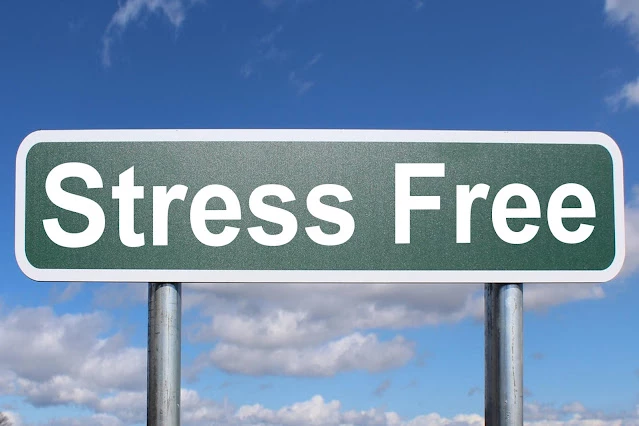Everyone knows that losing weight can be difficult, and many individuals resort to exercise to drop those excess pounds. On the other hand, stress is another element that significantly impacts weight loss. According to studies, stress can increase weight and make it more challenging to lose weight.
The relationship between stress and weight gain, the effects of stress on eating behaviors, and methods for managing stress to encourage weight loss are all covered in this blog post. You can successfully lose weight without exercise by managing your stress.
The connection between stress and weight gain
The body’s hormonal reaction to stress
The hormonal reaction to stress is one of the most critical factors linking stress to weight gain. Our bodies release a hormone called cortisol in response to stress. Cortisol, also called the “stress hormone,” is a hormone that affects metabolism and hunger.
Too much cortisol can cause a desire for calorie-dense foods and an increase in appetite, which can contribute to weight gain.
Correlation between stress and weight gain
Stress and weight increase are related, according to studies. According to an analysis of studies by The American Psychological Association, those who reported feeling stressed out were more likely to gain weight than those who felt less stressed.
Other research has shown that individuals with chronic stress are more likely to have a higher body mass index (BMI) than individuals without chronic stress.
It’s crucial to remember that stress and weight gain aren’t always associated, but they can still play a significant role in the process. Because of this, it’s essential to manage stress for both physical and mental health.
By developing coping mechanisms for stress, you can take charge of your weight reduction efforts and build a healthier, happier life.
The effect of stress on dietary practices
Emotional eating can result from stress.
Stress impacts not only our hormones but also how we eat. It’s natural to seek consolation in food when we’re under pressure. It is referred to as emotional eating and can significantly affect weight gain.
Emotional eating frequently entails overeating, typically high-calorie items, and failing to stop when satisfied.
Stress might alter typical eating habits.
Regular eating habits might be affected by stress. We frequently need more time to prepare meals when stressed, which can result in skipping meals or eating on the fly.
Making good dietary choices may become more difficult as a result. Instead, we choose quick, simple, and frequently harmful solutions. Additionally, over time, this may result in weight gain.
It’s critical to recognize these stressful eating patterns and make a concerted effort to alter them. It can involve meal planning, keeping wholesome snacks on hand, or finding alternative stress relief methods like taking a walk, yoga, or writing.
We may take charge and make healthier decisions that can help us lose weight by being aware of how stress impacts our eating patterns.
Strategies for managing stress to promote weight loss
Techniques for relaxation
Several methods can assist in managing stress, which is crucial for weight loss. Relaxation practices like yoga and meditation are among the most well-liked and successful ones.
These activities have been demonstrated to reduce cortisol levels and increase calmness, preventing emotional eating and aiding in weight loss.
Time management and prioritization
Stress can be decreased by using effective time management and prioritization techniques.
You may manage your time more effectively and feel less overwhelmed by breaking chores down and concentrating on what’s most crucial.
Stress levels can be reduced by prioritizing your well-being, relaxation, and other enjoyable pursuits.
Physical activity and exercise
Stress reduction and weight loss can be aided by physical activity, especially moderate-intensity exercise such as brisk walking, cycling, or swimming.
In addition to improving sleep—another crucial aspect of stress management—regular exercise can help release endorphins, which are natural mood enhancers.
Consulting a counselor or therapist
If you discover that stress affects your capacity to shed pounds and make healthy modifications, consider consulting a therapist or counselor.
A professional can assist you while you work toward your weight loss objectives, help you understand the underlying causes of your stress, and teach you suitable coping methods.
Journaling and self-reflection
Finally, keeping a journal and engaging in self-reflection might help reduce stress. You can learn to recognize patterns and triggers that contribute to anxiety and alter your behavior by regularly reflecting on your thoughts, feelings, and behaviors.
It can help not just with your efforts to lose weight but also with your general health.
You can better manage stress, lose weight more quickly, and lead a healthier lifestyle by implementing these techniques into your daily routine.
Case studies of individuals who successfully reduced weight by controlling stress
Hearing about real-world cases of people who have successfully lost weight by controlling stress can sometimes be beneficial. Here are a few case examples to show how managing stress might affect weight loss.
Since she was a little girl, Jane had struggled with her weight. She had tried several diets and workout plans, but nothing seemed to work. She eventually understood that stress had a significant role in her weight increase. She began doing yoga and meditation to lower her stress levels, starting a journal, and seeing a therapist. She lost 20 pounds in six months by controlling her stress, and she has been able to keep it off.
Bob worked a job that required a lot of stress, so he frequently turned to junk food to help him get through the day. He understood that his eating behaviors and stress levels were intimately tied. He began giving himself a higher priority and scheduling frequent exercise. Along with starting to meditate, he also started seeing a therapist. Over a year, he lost 30 pounds by following these guidelines, and he has since been able to keep the weight off.
As an emotional eater, Sara discovered that stress would make her crave fatty and sweet meals. To deal with this, she started doing yoga and meditation, which made it easier for her to control her stress levels. She began talking to a therapist and keeping a notebook in addition to this. She lost 15 pounds in three months and felt happier and healthier than ever by dealing with her stress and emotional eating.
As you can see, stress management can significantly impact weight loss. These people successfully lost weight because they recognized the connection between stress and weight gain and took action to lessen it.
Everybody’s journey is different, so it’s vital to remember that it may take some time to find the nutrition, exercise, and stress management balance that works for you. However, it will be worthwhile for your general well-being.
Conclusion
The link between stress and weight loss is undeniable. Gaining knowledge of the connection between stress and weight gain, the effects of stress on eating behaviors, and stress management techniques can support weight loss.
Numerous efficient strategies to lower stress and enhance general well-being include relaxation methods like yoga and meditation, time management and prioritization, exercise, therapy, journaling, and self-reflection.
We urge you to take the necessary action to reduce stress and apply these techniques daily.
You may lose weight and lead a better, happier life by taking care of the psychological and emotional issues that cause weight gain.
Remember that maintaining a healthy weight requires more than simply a balanced diet and regular exercise.
Finally, controlling stress is crucial for weight loss and general well-being.
We may achieve our weight loss objectives and enjoy healthier, happier lives by adopting an all-encompassing strategy and addressing the psychological and emotional issues contributing to weight gain.













Comments are closed.